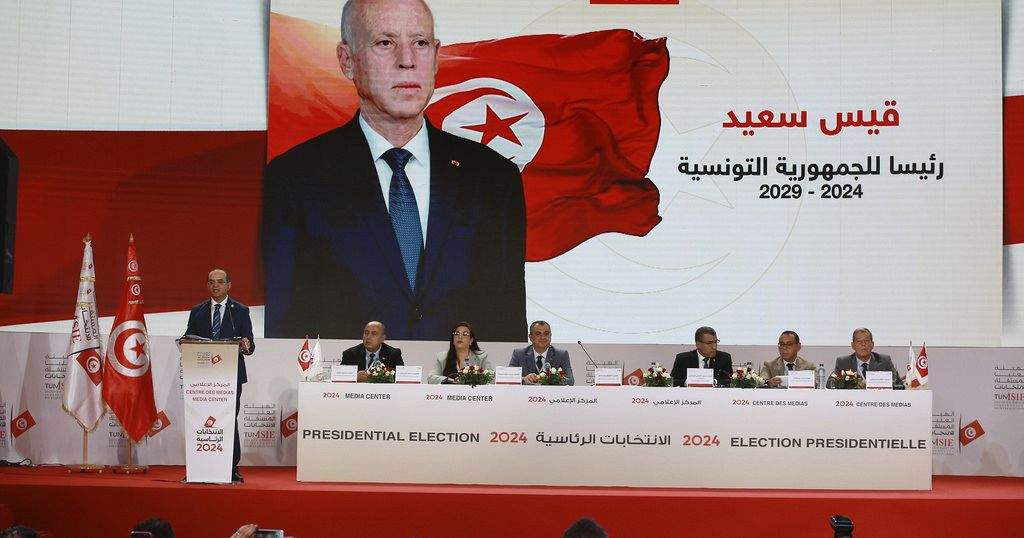Tunisia’s President Kais Saied Wins Decisive Election, But With Disappointing Voter Turnout
In a resounding victory, President Kais Saied has solidified his hold on power in Tunisia, winning the country’s recent election with a decisive 90.7% of the vote. However, the triumph was overshadowed by a disappointing voter turnout of just 28.8%. The election has been marked by controversy, with opposition parties boycotting the vote and criticizing the authoritarianism of the government.
According to Farouk Bouaskar, the head of the Independent High Authority for Elections (ISIE), Saied’s victory was sealed with a landslide 2,808,548 votes out of a total 9,753,217 eligible voters. His closest rival, businessman Ayachi Zammel, managed to secure 7.4% of the vote despite being imprisoned for election-related offenses.
The poor voter turnout has raised concerns about widespread apathy among Tunisian citizens, reflecting a stark decline compared to previous elections. Saied’s main rivals, who have been imprisoned since last year, were barred from participating in the election, while lesser-known candidates faced imprisonment or exclusion from the ballot.
Critics have accused Saied of cracking down on opposition and restricting civil liberties, with several key political adversaries, including right-wing leader Abir Moussi and Islamist Rached Ghannouchi, co-founder of the Ennahda party and former parliament speaker, being imprisoned. The government has also initiated a crackdown on civil society, with authorities targeting lawyers, journalists, activists, and migrants from sub-Saharan Africa.
The election has been met with skepticism, with Tarek Megerisi, a senior policy fellow at the European Council on Foreign Relations, stating that Saied will return to office “weakened rather than strengthened” by these elections. Critics of Saied have vowed to continue their opposition to his governance, with Amri Sofien, a freelance filmmaker, expressing a bleak outlook, saying, “It’s possible that after 20 years our kids will protest on Avenue Habib Bourguiba to demand his removal.”
The contrast between Tunisia’s current state and the country’s origins as the birthplace of the Arab Spring is stark. In 2011, protesters rallied for “bread, freedom, and dignity,” leading to the ousting of the president and the establishment of a multiparty democracy. However, the new leadership struggled to revive the economy and lost popularity due to ongoing political disputes and incidents of terrorism and violence.
Saied, initially an outsider in politics, secured his first term in 2019 with a pledge to fight corruption. However, his supporters were pleased when he declared a state of emergency, dissolved parliament, and revised the constitution to strengthen presidential authority, actions that many critics described as a coup. Tunisians voted in favor of the new constitution in a referendum in 2022, but the turnout was significantly low.
The disappointing voter turnout and controversy surrounding the election have raised questions about the future of Tunisia’s democracy. As Amri Sofien’s bleak outlook suggests, there may be little hope for the country in the years to come.
